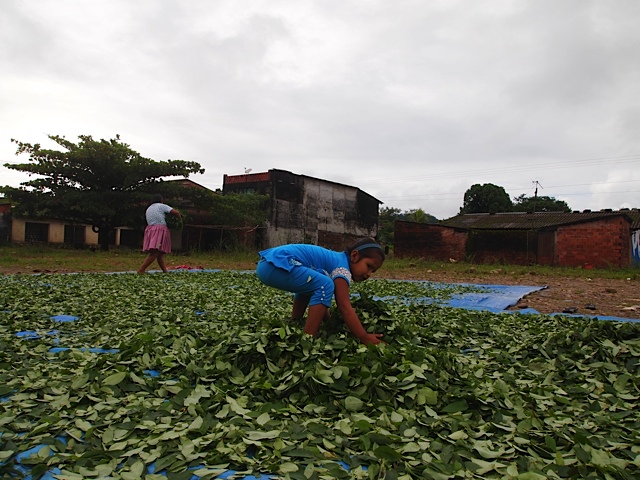Washington Snubs Bolivia on Drug Policy Reform, Again
Washington Snubs Bolivia on Drug Policy Reform, Again
Bolivia has found a way to cut coca production without sacrificing the leaf's cultural importance or cracking down on small growers. But Washington's not having it.
By Zoe Pearson and Thomas Grisaffi, September 19, 2014.

[font size=1]
In Bolivia, licensed growers can legally cultivate a limited quantity of coca—a policy that has actually reduced overall
production. But because it doesn’t fit the U.S. drug war model, the policy has raised hackles in Washington. (Photo:
Thomas Grisaffi / FPIF)
[/font]
Once again, Washington claims Bolivia has not met its obligations under international narcotics agreements. For the seventh year in a row, the U.S. president has notified Congress that the Andean country “failed demonstrably” in its counter-narcotics efforts over the last 12 months. Blacklisting Bolivia means the withholding of U.S. aid from one of South America’s poorest countries.
The story has hardly made the news in the United States, and that is worrisome. While many countries in the hemisphere call for drug policy reform and are willing to entertain new strategies in that vein, it remains business-as-usual in the United States.
The UN’s Office on Drugs and Crime (UNODC), meanwhile, seems to think that Bolivia is doing a great job, lauding the government’s efforts to tackle coca production (coca is used to make cocaine) and cocaine processing for the past three years. The Organization of American States (OAS) is also heaping praise on Bolivia, calling Bolivia’s innovative new approach to coca control an example of a “best practice” in drug policy.
According to the UNODC, Bolivia has decreased the amount of land dedicated to coca plants by about 26 percent from 2010-2013. Approximately 56,800 acres are currently under production
More:
http://fpif.org/washington-snubs-bolivia-drug-policy-reform/?utm_source=rss&utm_medium=rss&utm_campaign=washington-snubs-bolivia-drug-policy-reform
Trillo
(9,154 posts)a book by a title long gone from memory, that the people of the Andes chewed the leaves, they did not convert it to cocaine, that somehow this was fundamentally two different types of effects, two different chemicals, that chewing these leaves helped the very high altitude folks to deal with lower pressures and maintain a high level of activity.
